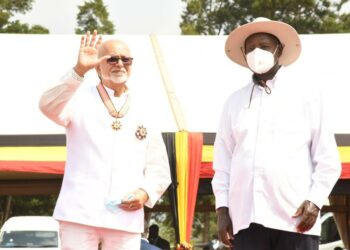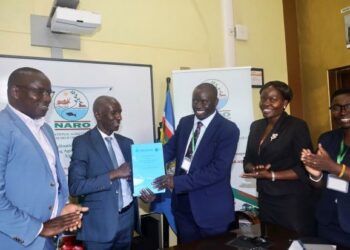The Ministry of Agriculture, Animal Industries, and Fisheries (MAAIF) is set to assume full responsibility for several agencies, following the dissolution of the Uganda Coffee Development Authority (UCDA), the National Agricultural Advisory Services (NAADS), the Cotton Development Organization (CDO), and the Dairy Development Authority (DDA).
This change, which came into effect on December 23, 2024, follows a controversial amendment passed by Parliament and signed into law by President Yoweri Museveni.
The dissolution process marks the end of an era for these specialized agencies, which were originally established to focus on various aspects of agricultural development. As of January 1, 2025, the Ministry of Agriculture will officially take over the roles and services that these agencies once provided.
This includes the oversight of Uganda’s coffee industry, dairy production, and cotton farming. The Coordinating Office for the Control of Trypanosomiasis in Uganda (COCTU), which had already been absorbed into MAAIF, completes the list of agencies now under the Ministry’s purview.
Under Secretary Ronald Gyagenda Ssegawa confirmed the changes in a letter issued on December 30, 2024, which invited the heads of the affected agencies to a formal handover on January 2, 2025. According to the letter, the government will begin a transparent process to determine which staff members will be retained by MAAIF, with severance packages provided for those who will be let go.
The Ministry’s takeover is expected to streamline operations and cut costs, with the government anticipating savings of up to 82 billion shillings in the next fiscal year. However, the financial cost of terminating the contracts of approximately 47 staff members across the dissolved agencies is expected to total 3.4 billion shillings in severance pay.
President Museveni Defends Rationalization Strategy:
The government’s decision to dissolve the agencies and absorb their functions into the Ministry of Agriculture has sparked debate across the country, with some questioning the rationale behind the move. Among the most contentious aspects of the decision is the merger of UCDA into MAAIF, which has raised concerns about the future of Uganda’s coffee industry. Critics argue that the UCDA played a vital role in boosting coffee production and enhancing market access for farmers.
However, President Museveni, who has long championed the restructuring of Uganda’s agricultural agencies, has firmly defended the decision. In a lengthy response to the criticisms, the President dismissed claims that UCDA had been essential to the country’s agricultural progress, pointing instead to the success of his own initiative, Operation Wealth Creation (OWC). He argued that OWC, which he leads alongside his brother Gen. Salim Saleh, has contributed far more to increasing agricultural productivity and ensuring market access than UCDA or any of the other affected agencies.
President Museveni pointed to the success of coffee production in the Masaka region, where over a million coffee seedlings were distributed, and the expansion of farming across 38,666 acres. He also emphasized the broader impact of OWC in lifting the number of Ugandan households participating in the money economy from 33% to 67% since 2013.
“The success of agriculture in Uganda is not because of agencies like UCDA and NAADS. They claim credit where it is not due,” Museveni said. He further stressed that it was his leadership in the dairy sector, particularly in the cattle corridor, that had driven the country’s agricultural achievements. Citing his work in transforming dairy production from Bukanga to Karuma, Museveni expressed disappointment that others, including politicians, had failed to recognize the effectiveness of his programs.
Government’s Push for Efficiency Amid Criticism:
While the restructuring has been heralded by some as a necessary step to improve efficiency and reduce government spending, the move has not been without its critics. Some argue that the government is dismantling successful programs in a bid to centralize power and reduce bureaucratic oversight. The dissolution of these agencies has also raised concerns about the future of specialized support for farmers, particularly in coffee, cotton, and dairy sectors.
In his remarks, President Museveni also pointed to what he described as “tribalism” in the debate surrounding the coffee industry, suggesting that vested interests had overplayed their hand in arguing for the continuation of UCDA as an independent entity.
Despite these tensions, government remains committed to the rationalization plan, asserting that the Ministry of Agriculture’s enhanced capacity will better serve Ugandan farmers and lead to a more sustainable agricultural sector.
Do you have a story in your community or an opinion to share with us: Email us at editorial@watchdoguganda.com













